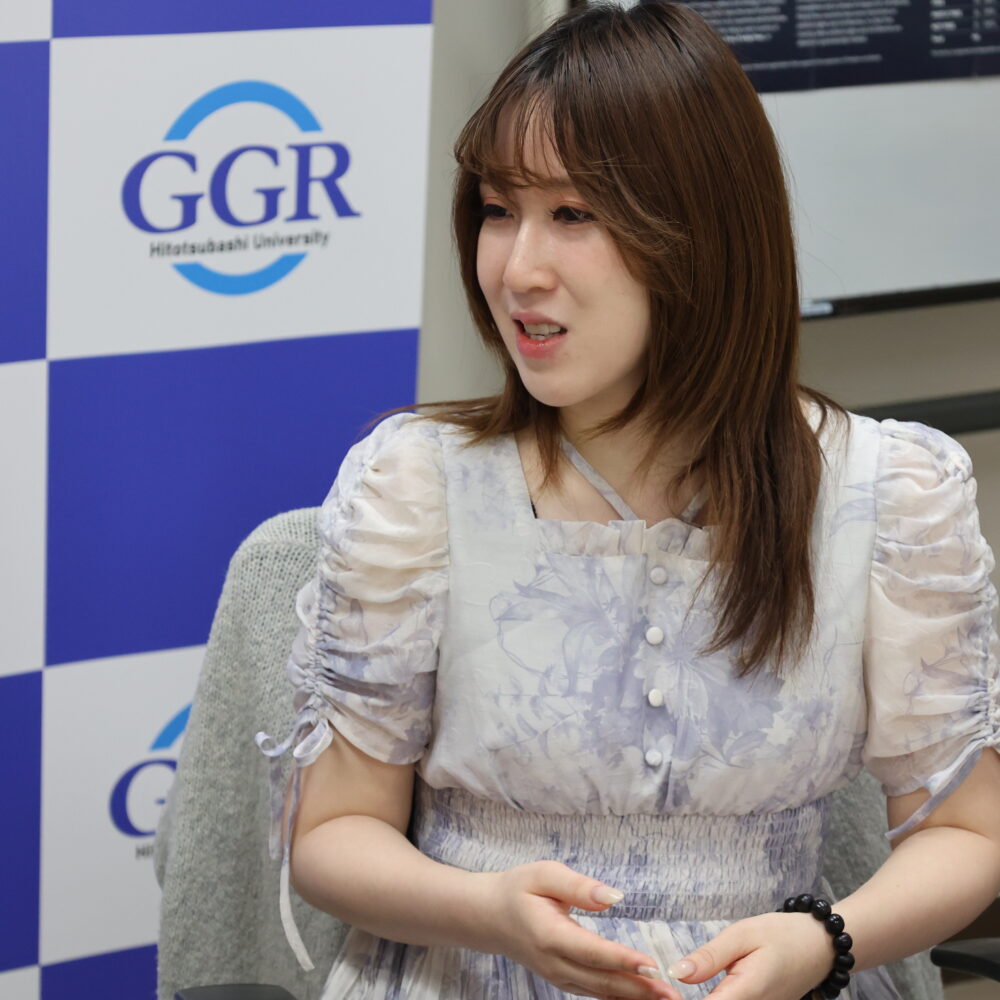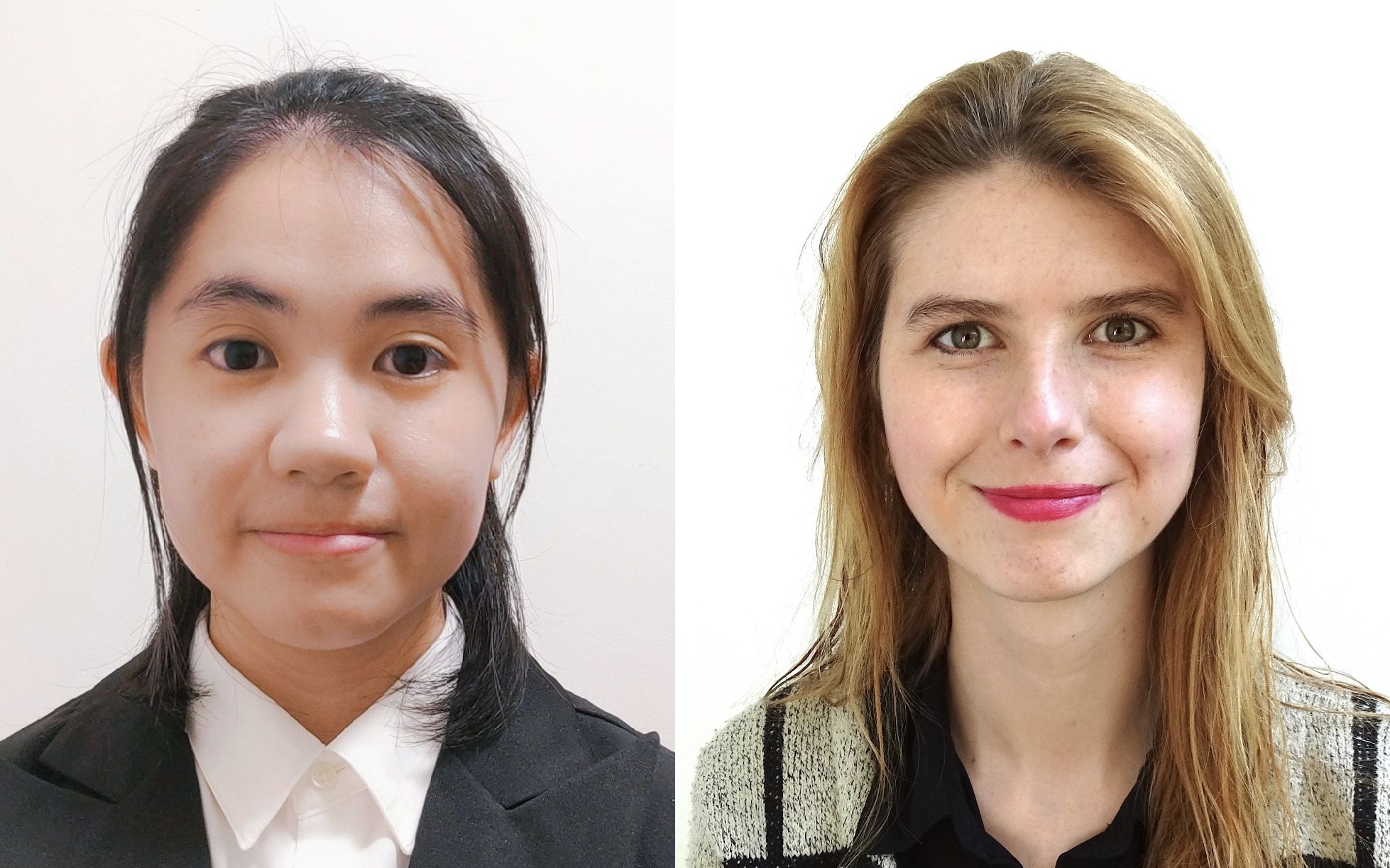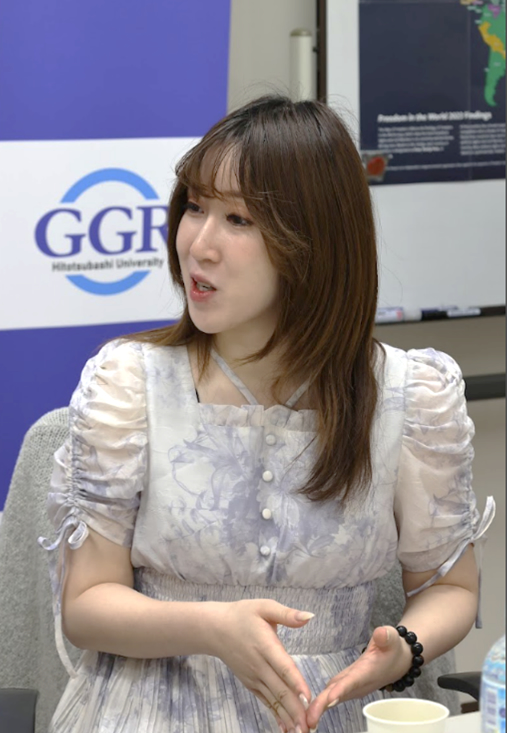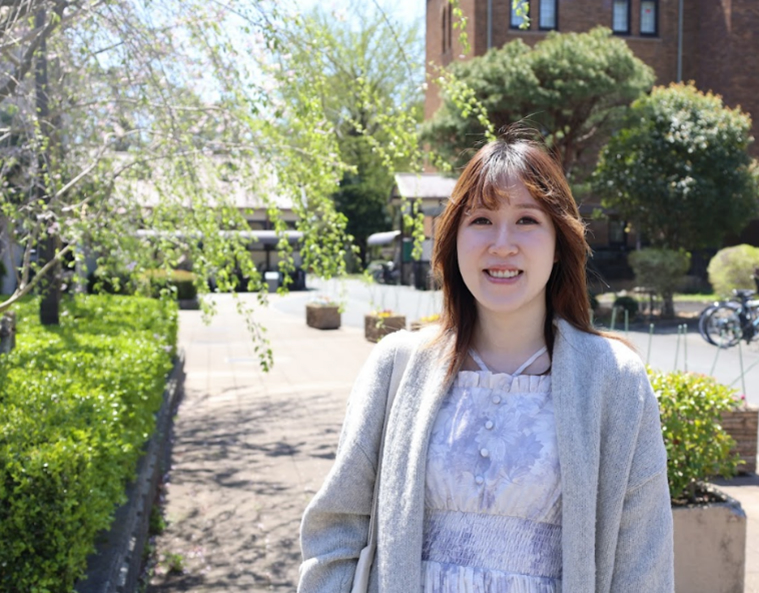

Defying Giants: Hong Kong–Brewed Counter-Narratives to Stop the CCP’s Global Anti-Democracy Campaign
Interviewer and author: Sulastri
(Master’s student, School of International and Public Policy, Hitotsubashi University)
Author: Sascha Hannig Nuñez
(Doctoral student, Graduate School of Law, Hitotsubashi University)
November 18, 2024
*This paper was written based on an interview conducted on April 10, 2024.
In 2014, an infinite coat of yellow umbrellas covered Hong Kong. In the rainy city, the gray clouds symbolized both the dusk of freedom and the dawn of a resilient generation of democratic Hongkongers who would stop at nothing to protect their identity, liberties, rights, and autonomous institutions. At the time, the Chinese Communist Party wanted to impose a series of reforms to force CCP-friendly representatives into the Hong Kong government, and this caused a series of sit-in protests that lasted around three months and culminated with the internationalization of the democratic movement.
Athena Kerin Tong was an undergraduate student during these events, but those young leaders of the movement were the same age as or even younger than her. Thus, she felt compelled to learn more about their cause. Her curiosity was boosted by some of her teachers, who showed her the importance of human rights geopolitics, understanding the values in society, and how that constitutes the check and balance for accountability in case things go wrong. She ventured into journalism and followed a number of politicians, which marked the beginning of her path into activism as an integral part of her identity.
Athena grew up in a rather apolitical household, but her parents always encouraged her curiosity: “[My father] has always been academically curious. He has never told me what to think, but he greatly influenced how I perceive things and try to find the truth and the intriguing points of learning about certain subjects. […] My mother works in healthcare, so she taught me more about health and culture, and we talked quite a bit about cultural influence. For example, how the UK influences certain infrastructure or government discourse, how we perceive history, etc.”
Having seen the havoc wreaked in Hong Kong and the broken promises of the CCP toward her people, Athena sees China’s narrative as unreliable and a threat to democracy internationally. As she explains, “They shape discourse and shape the national narrative, and how that consequently shapes our understanding of what China is today and what we previously understood to be our rules based on international order.”
 Narratives are often seen as superficial but can shape people’s lives to the core. For example, she states that “ISIS infiltrated the discourse of what it means to be Muslim and the meaning of having that religion but living in a non-Muslim country. [Doing this], they shape the second-generation immigrants overseas.” This eventually changed the fates of families, communities, and even the policies of countries that dealt with this serious narrative. In that sense, Ms. Tong sees a palpable threat in this, and she has explored the possibility of this phenomenon affecting Taiwan, especially during elections as happened in January 2024. Her interest has also led her to explore China’s hybrid warfare tactic, which the regime conducts “ through economic coercion and influence operations. Especially because of the Belt and Road Initiative, where you have surrounding countries, especially in Southeast Asia. But also Africa because they borrowed a lot of money from China to build their infrastructure, and now, they owe China a lot. If they cannot pay it back, especially with the current economy, then they pay it back through political favors through votes in the UN. There are multiple ways that China goes about doing this.”
Narratives are often seen as superficial but can shape people’s lives to the core. For example, she states that “ISIS infiltrated the discourse of what it means to be Muslim and the meaning of having that religion but living in a non-Muslim country. [Doing this], they shape the second-generation immigrants overseas.” This eventually changed the fates of families, communities, and even the policies of countries that dealt with this serious narrative. In that sense, Ms. Tong sees a palpable threat in this, and she has explored the possibility of this phenomenon affecting Taiwan, especially during elections as happened in January 2024. Her interest has also led her to explore China’s hybrid warfare tactic, which the regime conducts “ through economic coercion and influence operations. Especially because of the Belt and Road Initiative, where you have surrounding countries, especially in Southeast Asia. But also Africa because they borrowed a lot of money from China to build their infrastructure, and now, they owe China a lot. If they cannot pay it back, especially with the current economy, then they pay it back through political favors through votes in the UN. There are multiple ways that China goes about doing this.”
Another crucial issue that stems from Athena’s experience in Hong Kong is the constant persecution of and crackdown on journalists and activists, as well as the lingering threat of unfairness and persecution. Figures like Jimmy Lai are still in jail, and many activists like Simon Cheng or, recently, Agnes Chow – are fleeing the city and being heavily threatened to censor themselves. This constant danger “limits how fast you respond to things and how much you can access that information and disseminate it to the masses,” explains Ms. Tong.
She compares this situation to the infamous Cultural Revolution, as “during the Cultural Revolution, the [Chinese dictatorship] cut off communication and travel between mainland China, Macau, and Hong Kong for decades until China entered the WTO in 2002, and people could travel freely again. Right now, activists who have a bounty on their heads may not be able to travel freely, and their families may not be able to travel out. They cannot travel without risk of being arrested. It is like history is repeating in a different form.” Of course, this affects family, connections, friendships, and the general mental health of activists. “It is hard for us, as Hong Kong activists, to talk too much about our families because of the risk. It risks the profile of our families on the ground, which would go against the no-harm principle in the human rights movement. I see it myself how my former colleagues from the same political party have already been facing such forms of harassment.” This action builds fear among Hong Kong people even about getting closer to know other people personally, and builds distrust toward others.
As she puts it, an apparent lack of international support fuels this fear and feeling of loneliness and despair: “[There is] a lack of incentives for these stakeholders to do something for Hong Kong, and it is the same for another region like Tibetans, Thai activists, or Myanmar activists. But seeing how the other activists are working on their rights, it also gives encouragement for us despite the difficulty we faced.” This has to do with China’s political and economic power, as “some governments do not want to make a dramatic move unless it benefits them. So even among sympathetic countries, they avoid provoking China too much and unless there is a pretty serious execution of the legislation – Article 23 – we might not be able to constantly provide updates.”
Athena Tong is a Visiting Researcher at the University of Tokyo, and a Research Associate at the China Strategic Risks Institute. Prior to her move to Tokyo in 2022, she has worked since 2015 in the political and human rights advocacy space in Hong Kong, leading international advocacy efforts in the field. She is a graduate of Hong Kong Baptist University, Sciences Po Paris, and University of London, where her academic endeavours centred on Psychopolitics, Identity-Building, and Political Communications. Her current research scope includes human rights diplomacy, counter-influence operations, and economic security in relation to the PRC.

